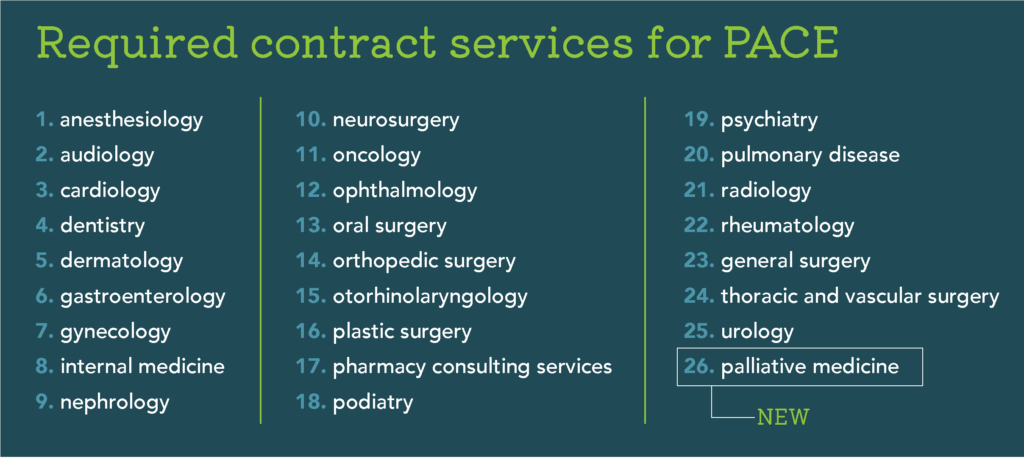Recently the Centers for Medicare and Medicaid Services (CMS) released a final rule that includes significant implications for PACE programs. Some of the rule changes are already in effect as of June 5, 2023. Others will take effect on January 1, 2024. A brief summary of the five areas that impact PACE follows.
1. Contract year definitions
PACE organizations will now be allowed more time to enroll participants and gain program experience prior to their first audit. Furthermore, the PACE program’s initial contract year may now be 19-to-30 months, as determined by CMS. All contract years, no matter their start date, will end on December 31. New PACE organizations will still experience three audits during their trial period, which is likely to extend said trial period.
This change applies only to programs that are expecting their first audits within the trial period. Established programs can disregard it.
This change went into effect on June 5, 2023.
2. Civil monetary penalties and intermediate sanctions
CMS has removed the 30-day window for citation correction in situations where egregious violations exist. The rule provides for civil monetary penalties and suspension of enrollment and/or payment to be implemented immediately, without any opportunity to make corrections. Previously, programs have had a 30-day window in which to correct any areas where CMS found them to be deficient.
3. PACE contracted services
Historically, PACE programs were required to contract a specified minimum list of 25 services or specialties. This requirement was subsequently eased in 2006 and has now been reinstated, with one addition: PACE programs must now provide palliative medicine.

4. Service determination request (SDR) extension notifications
This new rule allows for service determination extension notifications to be communicated orally or in writing, where they were formerly required to be in writing.
This change took effect June 5, 2023, and programs need to update their SDR policy and educate staff immediately regarding the update.
5. PACE maintenance of medical records
CMS requires PACE programs to maintain all written communication pertaining to participant care, health, and safety. Now, this language has been modified. Where all communications were previously required to be stored within the EHR, CMS will now allow written communications in their original form to be stored outside the medical record where appropriate. The medical record, however, must contain a thorough and accurate summary. Also, the original communications must be available to CMS and the State Administering Agency (SAA) upon request, no matter where they are stored.
Other changes to prepare for
CMS plans for additional Part D updates that will also impact PACE, specifically those dealing with participants’ primary language and matters of health equity in Medicare Advantage:
The list of populations that must be included will be clarified, and programs will be required to note providers’ cultural and linguistic capabilities. Programs will also be required to note how disparities in health and healthcare are addressed in the Quality Improvement Program.

